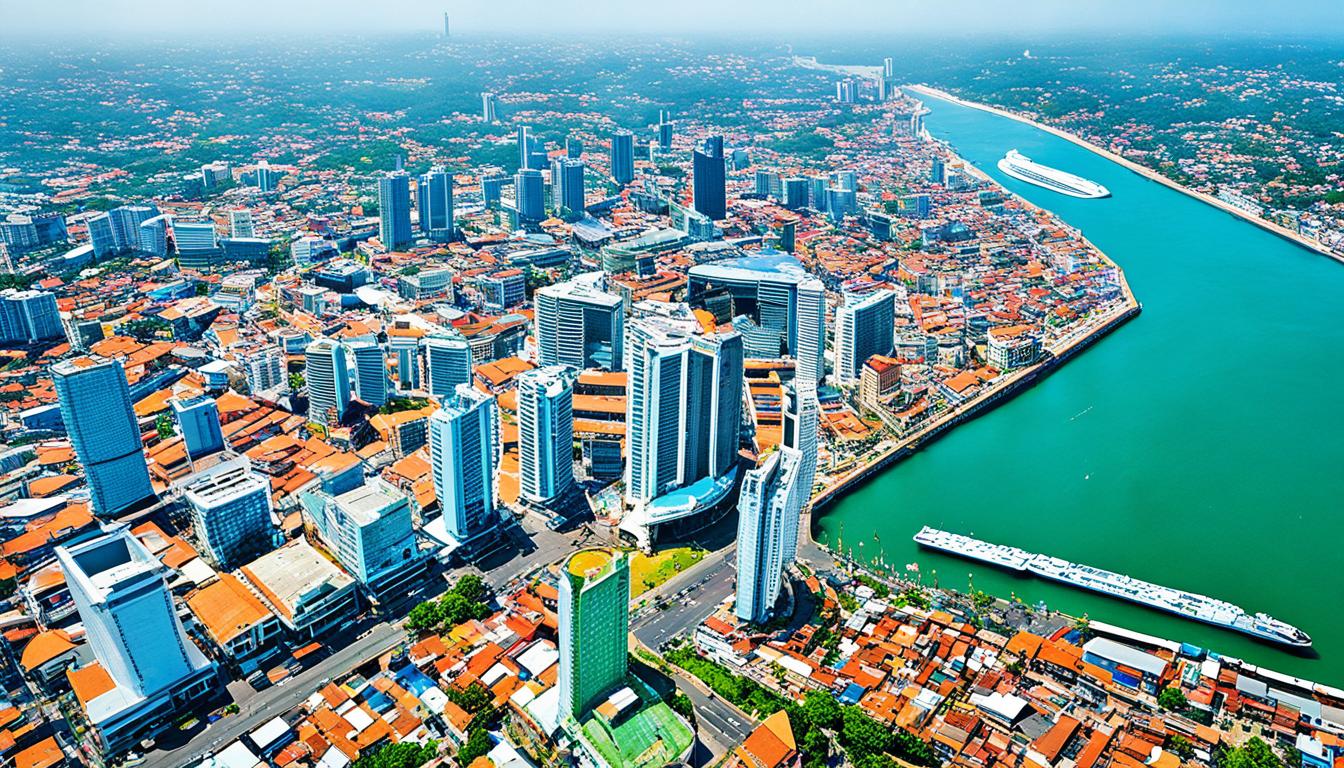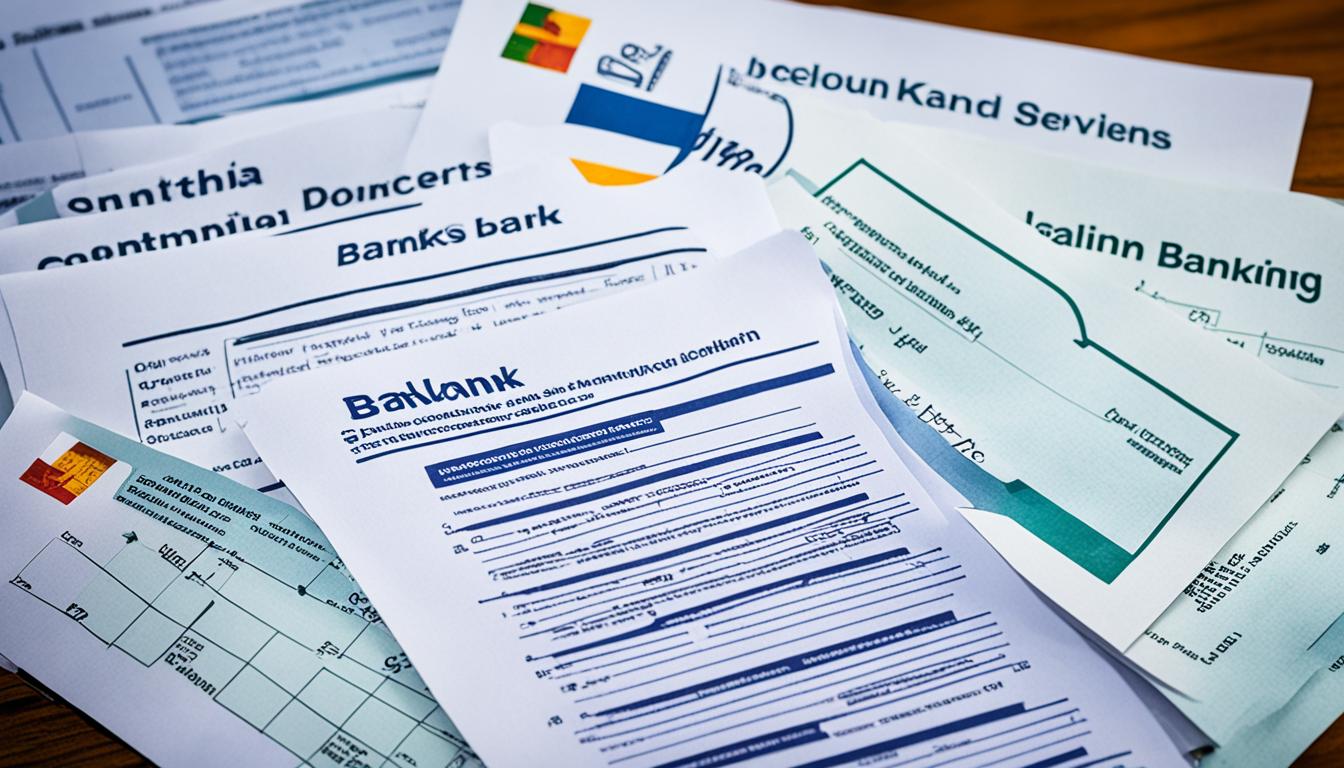Amid Sri Lanka’s striving towards economic stability, VAT benefits emerge as a cornerstone of the proposed tax reform. With an eye on bolstering the tax-to-GDP ratio, crucial for robust fiscal health, the country considers amendments to its taxation framework. As part of the IMF stabilization program, Sri Lanka is urged to enhance its tax-to-GDP ratio, a critical metric underscoring the nation’s revenue-generation efficiency. The program’s goals include elevating this ratio from a modest 7.3 percent to a more sustainable 14 percent by 2026. Effective VAT education and clear communication of the VAT mechanism’s role in supporting the nation’s financial recovery are essential in fostering societal acceptance and optimizing the tax reform’s outcomes.
Key Takeaways
- Understanding VAT benefits is key to Sri Lanka’s financial reformation.
- An increased tax-to-GDP ratio is vital for Sri Lanka’s economic stability.
- The IMF stabilization program sets a target to nearly double the current tax-to-GDP ratio by 2026.
- Effective VAT education is imperative to dispel misconceptions and enhance public understanding.
- Public awareness can help ensure acceptance of the integral role of VAT in Sri Lanka tax reform.
Understanding Sri Lanka’s Economic Landscape and the Need for VAT Reform
Amidst the picturesque landscapes and cultural richness, Sri Lanka grapples with significant economic challenges that hinder its path to sustainable development. A primary concern is the country’s low tax-to-GDP ratio, an indicator of fiscal health that desperately requires enhancement. By reinforcing the mechanisms of taxation, particularly the Value Added Tax (VAT) system, Sri Lanka aims to catalyze tax revenue growth and achieve equilibrium in its financial ecosystem.
An Overview of Sri Lanka’s Tax-to-GDP Ratio Challenge
The alarmingly low tax-to-GDP ratio in Sri Lanka not only signifies subdued fiscal strength but also reflects the urgencies faced by its economic policy architects. To address this, there’s a planned rectification through the adjustment of taxation mechanisms and a strategy for widening the tax base. A substantial increase in the tax-to-GDP ratio is paramount for aligning the country with other nations on a trajectory towards prosperity.
The Mechanism of VAT Versus Traditional Sales Tax
While both VAT and traditional sales tax aim to generate revenue, the VAT mechanism is more robust, ensuring a tax responsibility is shared throughout the production and distribution process. This contrasts the one-point imposition typically seen with sales tax comparison. Such an inclusive strategy is expected to prevent tax evasion and enhance compliance, with the added benefit of making the Sri Lanka VAT rate increase
IMF’s Role in Tax Reform and Economic Stabilization
The International Monetary Fund (IMF) has been instrumental in guiding Sri Lanka towards a more resilient economy, advocating for comprehensive tax reform and proffering IMF support. Moreover, addressing financial institution challenges remains a critical component, as high-interest rates pose an ongoing conflict with the desired economic policies for stabilizing the national economy. Scrutinizing these institutions and their congruence with Sri Lanka taxation objectives is an area the IMF continues to signal as needed alignment for future economic health.
What it takes to convince Sri Lanka of Value Added Tax!
In the midst of economic reform, Sri Lanka faces the delicate task of VAT justification to ameliorate revenue while safeguarding economic equilibrium. As the nation battles with economic pressures, the revision of VAT comes off as a critical pivot in Sri Lanka’s economic policy, nudging it toward recovery. One might wonder what it takes to earn public confidence in tax systems, particularly with such measures that could initially be perceived as burdensome.
To approach this, the government needs to craft policies imbued with clarity and direct benefits visible to the public. In essence, securing trust hinges on transparently handling the twin dilemmas of efficient resource allocation and overcoming tax evasion. By strategically revising exemptions on essential goods, the economic policy must display a commitment to protecting the most vulnerable demographics from the potential ripple effects of increased VAT.
- Transparent allocation of public funds, allowing citizens to track and understand where and how their taxes are being utilized.
- Amplified efforts in overcoming tax evasion through reinforced legal frameworks and diligent enforcement.
- Public sector auditing processes visible to the public to ensure accountability and justify VAT expenses.
- Educational campaigns illustrating the rationale behind VAT reforms and demonstrating the long-term benefits of these changes.
Ultimately, these strategic steps toward transparency and accountability, backed by educational support, will be quintessential in amplifying public confidence in tax systems, ultimately leading to a more robust and resilient Sri Lanka.
Transparency and Trust: Overcoming Barriers to VAT Acceptance
Building trust in governance is a cornerstone for enhancing the acceptance of Value Added Tax (VAT) in Sri Lanka. The pathway to this acceptance is multi-faceted but begins fundamentally with managing public perception through sheer transparency. Effective tax money utilization becomes visible to the public when governmental actions and spending are presented in a straightforward, comprehensible manner. Alarmingly, skepticism among citizens often springs from witnessing a disconnect between the taxes they pay and the anticipated improvements in public services and infrastructure.
It is pivotal that the government prioritizes clear communication strategies that promote understanding of how tax money utilization directly impacts socio-economic growth and the quality of life for its residents. The adoption of such strategies can significantly influence the tide of public opinion and ensure that tax reforms, including VAT, are met with informed perspectives rather than resistance.
- Showcasing practical examples of VAT revenue allocation to meaningful projects can solidify trust in how public funds are utilized.
- Limiting non-essential government expenditure reinforces the message that the tax system aims to serve the broader public interest.
- Launching educational campaigns to elucidate VAT exemptions will delineate its benefits and address common misconceptions.
When it comes to offsetting the resistance to VAT, subtracting the opulence from governmental practices is crucial. Frugality in handling public funds must not only be practiced but also perceived, for perceptions govern the public’s trust. At this crux, enabling access to clear information about exempt categories—such as necessities and healthcare—fosters a transparent ecosystem where citizens can see fairness in action.
- Frequent updates regarding financial strategies and their outcomes.
- Seminars and workshops explaining VAT implications on everyday transactions.
Indeed, an informed public is a confident public. In orchestrating a public discourse infused with sincerity and evidence of progressive financial stewardship, Sri Lanka will pave the way for its citizens to understand—and crucially, support—the introductions and adjustments in VAT policy.
Ensuring Progress: The Role of Revised VAT Exemptions and Education
The latest VAT reforms in Sri Lanka are pivotal for the nation’s economic stability. They are carried out with the dual intentions of increasing tax revenues and simultaneously offering a shield to the most vulnerable populations from the financial repercussions of the same. One of the cornerstone approaches to achieve this balance is the astute application of VAT exemptions. The impact of these exemptions has been critical, as they ensure that basic goods such as food staples and necessary healthcare services remain accessible to all economic strata, particularly the low-income groups. By carefully delineating these commodities and services from the VAT blanket, the government exhibits a commitment to maintain the protective gears of social welfare while navigating through the tempest of fiscal restructuring.
Moreover, the intricacies of VAT exemptions unfold further benefits through zero-rated financial services and incentives for exports that perpetuate the economic recovery support. These nuanced measures serve not only as a financial safety net but also as a stimulant for domestic enterprises, easing the transition amidst tax reformation. Nevertheless, the efficacy of these adaptations lies heavily in the awareness and understanding of the populace about VAT’s implications—a domain where the importance of VAT education becomes manifest.
Through augmented efforts in educating the public about the VAT framework, the nuances of exemptions, and zero-rating provisions, the country fetches a crucial ally against the tide of misinformation. Such initiatives in VAT education importance are indispensable in bolstering an informed citizenry who can discern the facts of the reformed tax landscape and advocate for judicious fiscal measures. In essence, making strides in VAT education is synonymous with empowering the citizenry to partake in a forward-moving dialogue on tax policies, thereby underpinning a collective journey towards resilient economic resurgence.













